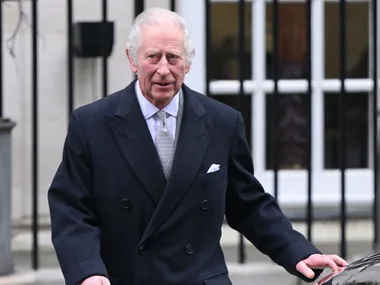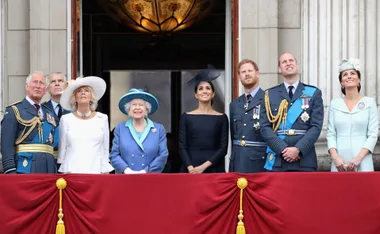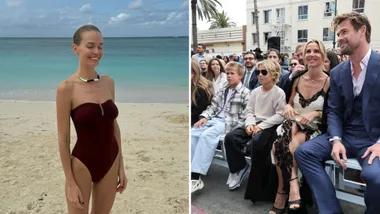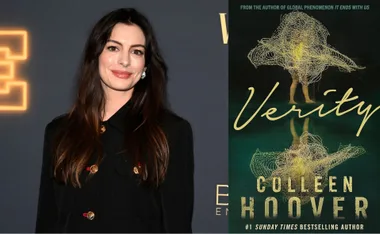Interview with Kate Jennings, author of Moral Hazard, Book Of The Month in the May issue of The Australian Women’s Weekly.
Moral Hazard (Picador $28): Clever, literary Cath, is plunged into the cut-throat world of Wall Street after her husband, Bailey, is diagnosed with Alzheimer’s disease and she needs the money to pay for his care. A dark sounding plot transformed into a riveting read that makes you cry and laugh, while Cath runs as fast as she can between her unravelling private life and the snake pit of big business. Perceptive, witty and full of raw emotion, this is one of the most powerful books of the year.
Q Congratulations on the book, I read it in one sitting and kept reading it out loud to my husband so he could share the laughs. A I’m glad you got the funny bits – you’ve obviously worked in offices.
Q The story is both hilarious and heart-breaking, I imagine it’s semi-autobiographical because of the way you depict what it’s like to work on Wall St? A I write close to life. The book came about because my husband was diagnosed with Alzheimer’s disease and I went to work on Wall Street to pay the bills. It seemed to me that I was commuting between two forms of dementia – that’s what I wanted to depict. All the same, the book is fiction, with made-up characters. Life is much messier and more awful. Let’s just say that the facts are not necessarily true, but the emotions are.
Q How did you survive between what was happening in your personal life and the pressure of having to work in an alien environment and learn all that financial jargon – you must have been exhausted? A I was. Like Cath, the central character in the book, I didn’t have the luxury of being able to be judgemental or have opinions or any of the ordinary things that people do. I did it because I had to do it. It was truly a nightmare. But there are people who have much larger nightmares. They have spouses who are sick for many years and they raise children. Sometimes those spouses go through dreadful personality changes which happens with neurological diseases. I only had 7 years. But the fact is, Wall Street is fascinating. So it did take my mind off the other part of my life. I had to concentrate. Every minute of the day I had to be alert and use every bit of my brain because it was so foreign. The finance side I managed to learn relatively easily. The corporate side was really really hard. In fact I had to go to a shrink, a behavioural guy who was an expert on organisations. And he would interpret for me because I had no idea what was going on. A lot of tips in the book that the character Mike gives Cath, I got from the shrink. There was no such person as Mike. I wish I’d had someone like that. I did meet some extremely kind and supportive people, but it’s a brutal environment.
Q I’m amazed you got your head wrapped around the financial side – most creative people blank out when a number’s mentioned. A I was the same way. I couldn’t tell a stock from a bond. It’s a pity that we do that because what bankers do, affects us all. I had to pinch myself that I was actually working with these guys. Who knew that men in suits with thinning hair could be so mesmerising, so chock full of juicy hypocrisy and fabulous vainglory – ripe for the picking! As a novelist, I was drooling.
Q The way you describe these powerful men and they’re plots in your book, it’s almost Shakespearian? A That’s exactly what it is. Such drama, such tumult.
Q What you’ve been doing since leaving Wall St? A The first year after Bob died I was a mess. You would think that I would be in some sense relieved not to have the burden of the nursing home and to have your heart breaking in 100 different ways every day. But that wasn’t the case. Bob was a wonderful man. He was so vital, so alive. I was the last person you’d ever expect to find on Wall Street – and he was the last person you would ever think would lose his mind. After he died, I was completely adrift. I was left with me and my demons. I stopped working on Wall Street, because it was really hard to stay once it was no longer necessary. So I wrote the book, sobbing. People say you should let experiences lie for a while before you write about them. Then again, this way it’s more immediate, more raw. The ending was actually much more pessimistic, but by the time I did the final draft I was able to inject more of my husband’s optimism. Since then I’ve been selling the book. Promoting it. So I’ve been preoccupied with all that. But the thing that has happened that has made a huge difference is that my former boss on Wall Street gave me a little dog. He is a border terrier named Stanley, and he has saved my life because not only do I have to go outside the apartment to walk him every day, but I talk with all kinds of different dog people. There’s a big dog culture in New York. He’s always curious and wakes up every day ready for the world. And it’s hard to be miserable around a creature like that.
Q It’s also interesting that your former boss was sensitive to what happened to you. A Yes, sure, not all bankers are corrupt and ruthless!
Q A lot of people who died during the September 11 attack were involved in the financial world, did anyone you know perish? A I walked under the World Trade Centre every day for a number of years. The people I used to work with were all evacuated. It was beyond terrible, beyond any nightmare. But New York is very segmented and I didn’t know anybody else who died. They were saying everyone knows someone who perished, but it’s actually not true.
Q Was it a sense of adventurousness and curiosity about the world that made you leave Australia and travel to New York in 1979? A Yes. I didn’t want to go to England. It’s been 22 years – I’ve lived here longer than anywhere else. There were all kinds of reasons for leaving. Sixties radicalism was dying down — it was time to move on. I wasn’t the most thoughtful person in the world. I just up and left. Pride made me stay.
Q Was it difficult to make a living and survive in NY? A Early on it was difficult. I worked as a freelance writer for many years and every time the economy dipped, I, like all freelancers, felt it. So there were dire times.
Q You were raised in the Riverina on a farm – what kind of farm was it ? A Wheat, sheep, irrigation. Both my parent’s families from way, way back were farmers. There are two of us. My brother is Dare Jennings from Mambo. We were strange, determined, ambitious kids.
Q You both finished up with lives far removed from your upbringing? A Yes, we did (laughing). Dare lives in Sydney, practically in the sea and I live surrounded by skyscrapers. We went back last year for my Dad’s 80th birthday. Two hundred farmers and their wives had all gathered at the local bowling club. Both Dare and I had to speak. That was the hardest audience either of us will ever have! Country people – they’re independent sods, aren’t they? I realised how much of that is part of me – I don’t much like being told what to think.
Q Alzheimer’s disease is depicted in the book as being horrific and yet it also takes the brain on some fantastic adventures. Bailey said some amazing things and at times, he had acute insight ? A With Alzheimer’s, the brain is like a transmitter, fading in and out. If the brain ceased to work altogether, it would be easier. But it doesn’t happen like that. It affects people in different ways, But, yes, sometimes he’d say something and I would think, ‘Where did that come from?’
Q What did you set out to achieve with Moral Hazard? A Apart from depicting my commute between two forms of dementia, I really wanted to write a book about New York City. My last novel was set in Australia — I wanted to do the same thing with New York. And instead of writing about falling in love and dating and going to clubs — the usual stuff of novels set in this city — I wanted to portray an adult world, where the central character is navigating personal and public obligations.
Q Your book also explores euthanasia? A We all have had a relative or someone close to us say ‘Don’t let me get like that.’ Fact is, there’s a good chance that it will happen. You don’t know that you won’t end up demented, in diapers and drooling. I wanted to describe the emotional state that made Cath take her husband’s life. I’m not passing judgement on her – I wanted to understand. Dignity in death beliefs are intensely personal. Every case is different. I feel really strongly about letting people die when it’s their time. If there’s an issue I’m going to get worked up about, it’s that. To give aggressive medical care to people with late stage Alzheimer’s is horrible and cruel. That part of the book was true. Bob was so frightened, so distressed. In the end, he died of natural causes, but it was a big issue. There’s a line from a Leonard Cohen song that goes, ‘May everyone live and may everyone die.’ That sounds completely redundant. Of course we live and of course we die, but will we be allowed to die when we need to?
Q Can I ask how old you are? A Um, let’s see, 1948…I don’t know about you but I stopped counting after 50.
Q Is your age irrelevant to you? A I try not to pay attention to it. It’s hard because once women hit 50, they become invisible. Unless they’re Charlotte Rampling. So, hey, we may as well toddle along and think our own thoughts and not give a damn.
Q That’s a bleak view? A It’s true.
Q Well maybe, in general terms, like when you’re walking down the street, but not in other ways. A In investment banking, the average age was 27. I wasn’t just old, I was Neanderthal. Kids wouldn’t ask me what happened in the 1960’s — they would ask me what happened in the 1980’s. And New York being what it is, there’s even more of an emphasis on youth. Generally, I am happy to be alive and to be writing.
Q Where did you do your tertiary study? A At Sydney University.
Q What kind of degree did you get? A In English Literature – really shot myself in the foot there, didn’t I? (laughing).
Q You didn’t start off writing books, did you? A I started as a poet. I write ‘short,’ which means I re-write, re-write, re-write. My agent would love me to write longer novels — more money in it! I can’t do that – I keep reducing it down.
Q Do you write during set hours? A I’m fairly disciplined, being used to deadlines. I have to be, otherwise I might find myself back in a corporation. I mainly write in the morning. By the time I’ve walked the dog and read the newspapers it’s nine’ish. I’ll work till 2 or 3 in the afternoon. This book was different. This one I had to tie myself to the chair.
Q But writing it was also act of compulsion, wasn’t it? A Yes.
Q Did writing the book help you through the grief, because you do have to stop crying to write – right? A Yes. And also I had to earn a living. I had to get the book out there. At some point I had to stop being self-indulgent and say this is what I’ve got to do – or else!
Q Do you see yourself spending the rest of your life in NY? A I would say so. I have really good friends and a good apartment. Shortly after my father’s 80th, my brother had his 50th, so I went back twice to Australia within a relatively short period of time, and I have to say, Sydney is gorgeous. And the living is easy, great restaurants, cafes, weather. I would like to visit more.
Q Have the film rights been sold to Moral Hazard? A There’s some talk. Novels are crap-shoots. You can’t count on movie rights or get excited. You can’t even hope for them.
Q Do your hopes include becoming a big, best selling writer? A I would like to be able to earn my living from writing fiction. I don’t need a lot to live on. I’m happiest when I’m working. I really like to do this thing and do it well. I can’t imagine that someone (laughing) who writes short, grim, subversive books like mine will ever become rich and famous, but you never know!
Q Well, Moral Hazard has just been made Book Of The Month by The Australian Women’s Weekly? A Yes! That’s true!
Q Your biography describes you as a leading figure in the Australian feminist movement, what did you do? A I was a part of the first little feminist group in Sydney. We were also Vietnam War activists. At one moratorium, we managed to persuade the guys to let us give a speech. And I gave that speech — it was extremely confrontational. “You’ll think I’m a bra burning, man-hating, castrating lesbian bitch…well I am,” and they went berserk. Rhetorical language, of course.
Q Your parent’s must have been mystified by you? A Oh yes. I think all parents of sixties radicals were shocked and dismayed. You could say I spent the first half of my life getting on a high horse, the next half getting of it. They were wild years. We went at everything full tilt. I lived by Jane Austen’s motto: “Run mad as often as you choose, but do not faint.” The other thing I did at that time was put out the first anthology of women’s poetry. It was called Mother I’m Rooted and it made the front pages of the newspapers with photographs of me saying “Men are stupid.”
Q You were a wildfire weren’t you? A Yes. And there’s still fight in me.
Q How long were you married for? A Seventeen years – ten good ones, seven bad. My husband was so optimistic. He enjoyed life. I wasn’t the kind of person who knew how to have fun. He showed me how to have fun.
Q How did you meet? A I was working on a magazine and he came to work there as an art designer. He also designed record covers and some are famous. You’d recognise them. He knew everyone. And through him, I got to be a part of the community.
Q How much older was he than you? A 25 years.
Q And not a second of that counted? A No, it didn’t. And talk about learning not to worry about age — he never did. He’d see other older people and say “Am I like that?” Then it really caught up with him big time.
Q Have you got back into dating again? A No.
Q Because you’re still feeling bruised or because you’re content with your life as it is? A I had the great good luck to have a really good marriage. I’m okay. I’m fine. There are worse things than being alone. And most men are dead boring. (Laughing) They talk at you, have endless opinions, tell you what’s what!
Q Working on anything else? A I’m starting on a new novel. And concentrating on promoting this book, which is a big job. It’s amazing how labour intensive it is. My first book Snake really did well here and in England. We’ll see what happens now…











